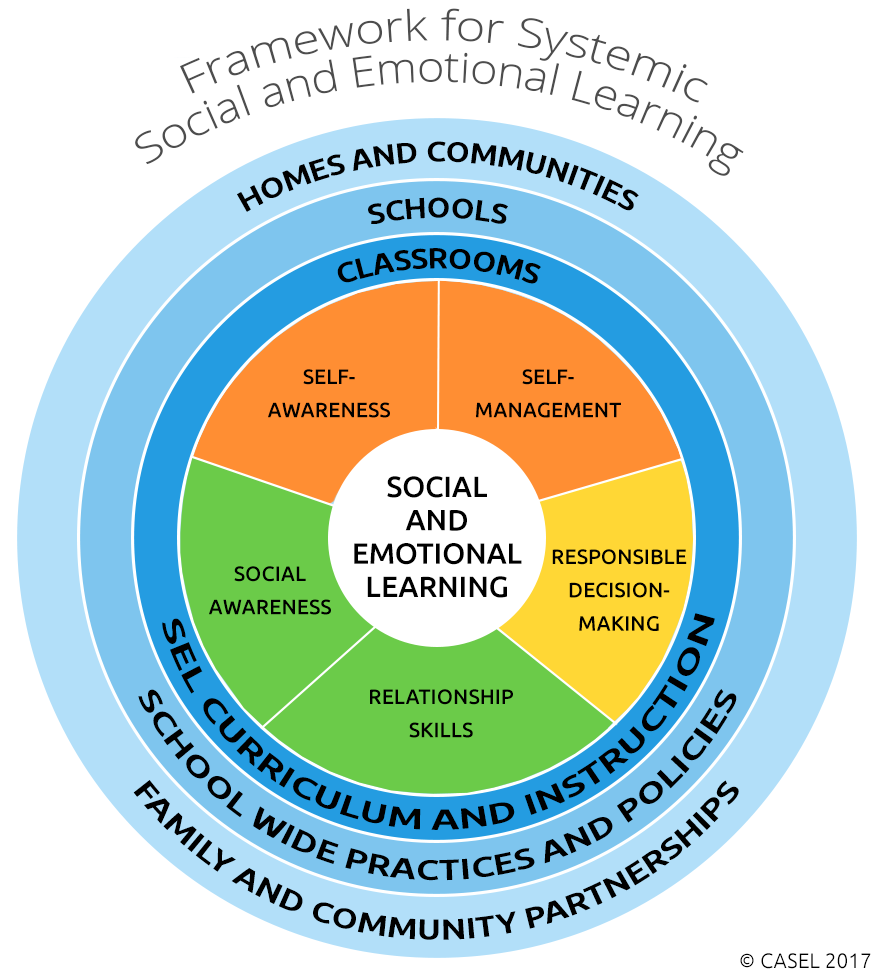
What is Social Emotional Learning?
What is Social Emotional Learning?
A framework proposed by the Collaborative for Academic, Social, and Emotional Learning (CASEL) at the University of Illinois at Chicago in 2004 illustrates the five core competencies of social and emotional skills:
Self-understanding on our strength and weakness as well as our emotion needs.
Impulse control as well as appropriate expression of emotion, task initiation, and organisation; self-monitoring, planning and prioritising. Research suggested that good social-emotional skills not only enable children to establish positive and trusting relationships with their peers, but also have better performance in school and work place.
Empathy and perspective taking, respect the others and the appreciation of diversity.
Abilities and attitudes on working with others, that includes social skills on communication, participation, negotiation, collaboration, as well as the positive attitude on establishing mutual support relationship with others.
A comprehensive skills that allow us to flexibly propose diverse solutions, as well as the ability to make constructive and respectful choices about personal behavior and social interactions based on consideration of ethical standards, safety concerns, social norms, the realistic evaluation of consequences of various actions, and the well-being of self and others.
